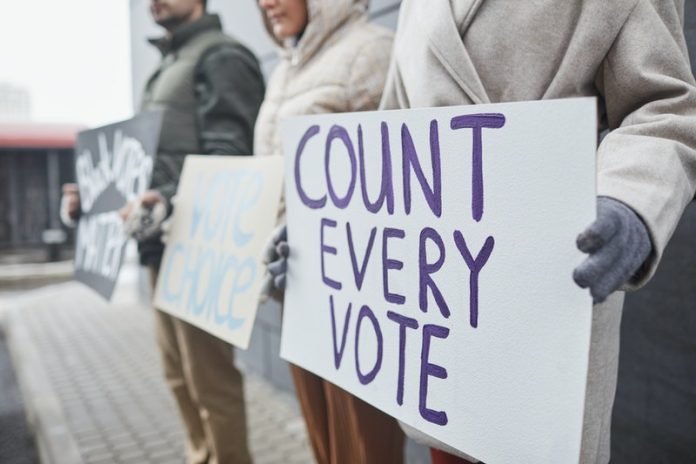
Scrolling social media, reading websites, listening to podcasts, watching the news.
With so many options, it’s never been easier to follow American politics, but at what cost?
In a new study from the University of Nebraska–Lincoln, researchers found all the political jockeying is harmful to our health and even a change in party power didn’t help.
The study is a follow-up to the ground-breaking 2017 survey study where the team first measured the effects of the political climate on Americans’ physical, social, mental and emotional health.
They repeated the same 32-question survey twice in 2020—two weeks prior to the election, and two weeks after.
They again found that a large proportion of American adults blame politics for causing them stress, loss of sleep, fractured relationships and more.
Similar to the 2017 findings, the 2020 surveys found that an estimated 40% of Americans identified politics as a significant source of stress.
Additionally, between a fifth and a third of adults (50 to 85 million people) blamed politics for causing fatigue, feelings of anger, loss of temper and triggering compulsive behaviors.
About a quarter of adults reported they’d given serious consideration to moving because of politics.
That the results remained mostly stable after nearly four years is cause for alarm.
The team says this second round of surveys pretty conclusively demonstrates that a huge chunk of American adults genuinely perceives politics as exacting a serious toll on their social, their psychological, and even their physical health.
Most stunning to the team was the repeated finding that 5% of Americans blame politics for having suicidal thoughts.
So, how can these effects be mitigated? The team says that’s a question they plan to explore further in future research, though they have identified one possible tool: becoming more politically knowledgeable.
If you care about wellness, please read studies about 5-minute exercise that could reduce high blood pressure, and fruit extract that could reduce muscle soreness by nearly 50% after exercise.
For more information about health, please see recent studies about common exercises that could protect against cognitive decline, and results showing that vitamin D can be an inexpensive COVID-19 treatment.
The study is published in PLOS ONE. One author of the study is political scientist Kevin Smith.
Copyright © 2022 Knowridge Science Report. All rights reserved.



